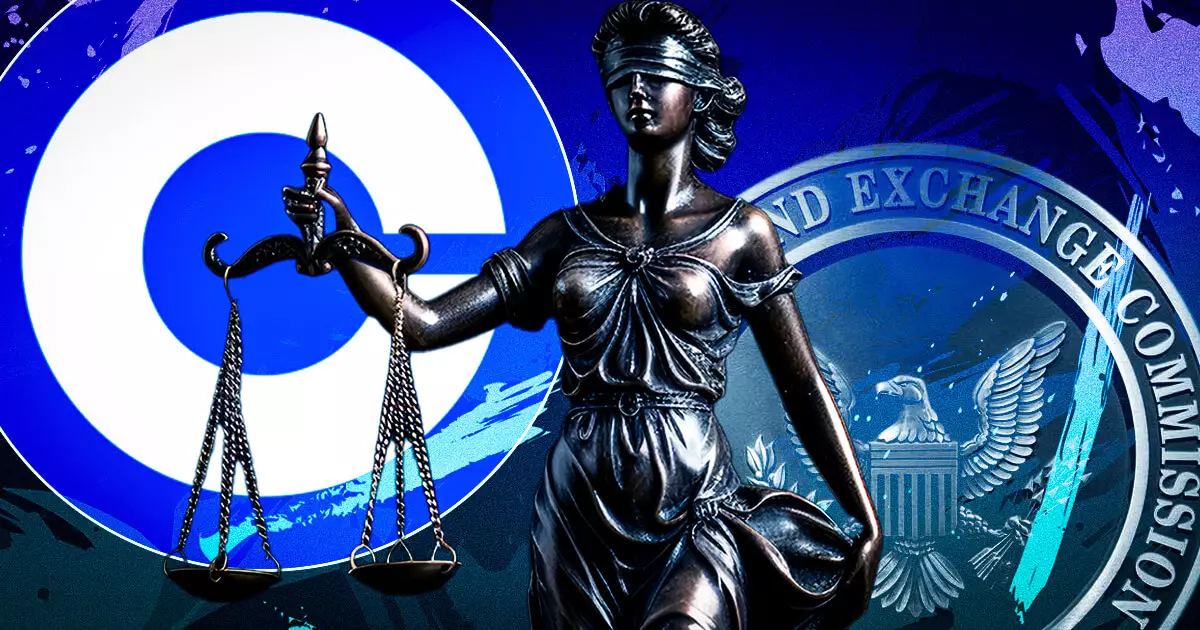The court hearing between Coinbase and the U.S. Securities and Exchange Commission (SEC) on January 17th shed light on the ongoing legal battle between the two entities. The SEC had previously accused Coinbase of operating an unregistered national securities exchange and providing an unregistered sale and offering of securities through its crypto staking service. While Judge Katherine Polk Failla did not provide a ruling during the hearing, her concerns mirrored those of Coinbase.
In the hearing, Judge Failla raised concerns about the SEC’s arguments regarding 13 crypto tokens offered by Coinbase. These tokens, while accessible to customers, are not issued by Coinbase and are considered securities by the SEC. The judge expressed apprehension, stating, “I am concerned that what you’re asking for is to broaden the definition of what constitutes a security.”
On the other hand, Patrick Costello, the SEC’s assistant chief litigation counsel, argued that the crypto tokens in question are part of a larger enterprise, such as a blockchain network, and can be considered investment contracts. According to Costello, the value of these tokens increases as the value of the network or ecosystem grows. Therefore, as the case develops, each token could potentially be classified as a security. However, Costello acknowledged that the token issuers did not explicitly violate securities laws.
Judge’s Support for Dismissal
Judge Failla referred to Senator Cynthia Lummis’ support for a dismissal of the case, as requested by Coinbase. The judge emphasized Lummis’ involvement in the space, stating that Lummis is “not just a random Senator” and suggesting her understanding of the outdatedness of securities tests. Judge Failla paraphrased Lummis’ statement, which implied that securities laws have been able to apply to markets for 90 years, indicating the need for a fresh perspective.
In the closing arguments, the SEC contended that Coinbase misinterpreted the Howey Test of 1934 and claimed that there was no “easy workaround” to avoid scrutiny. However, Coinbase maintained its innocence, asserting that the SEC failed to demonstrate any contractual relationship between token issuers and Coinbase customers. Coinbase argued that the SEC should follow enforcement and rulemaking actions that align with statutory language instead of distorting it. Ultimately, Coinbase requested the dismissal of the SEC’s case.
Despite Judge Failla’s critical stance towards the SEC, she refrained from making a ruling during the hearing. Her decision to withhold judgment was seen as a compliment to both parties, suggesting that each presented a viable argument. The lack of a decision indicates that the court will carefully consider the complex issues at hand before reaching a verdict.
The court hearing between Coinbase and the SEC highlighted the significant disagreements regarding the classification of crypto tokens as securities. Judge Failla’s concerns about the SEC’s broad definition of securities and the outdatedness of current laws raised crucial questions about the application of regulations in the rapidly evolving crypto market. Ultimately, the outcome of this case will have significant implications for both Coinbase and the broader crypto industry, shaping the regulatory environment for years to come.

